|
The taste of the ocean was what did it for me. I was around ten years old and staying with family in Jamaica for the summer. It was a bright, sunny day, perfect for heading to the beach. We took a trip over to Hellshire Beach for a day of swimming and unwinding, but it wasn't the crystal waters that took my breath away that day. It was a meal. A meal of fried fish and festival that would inevitably kick off my years-long love affair with seafood. I was never a huge meat person. The texture of beef was too much on my sensitive teeth, pork was great when it was bacon, and chicken was basic unless deep fried and covered in a sticky, savory sauce. I ate what I thought I needed to for protein, but rarely was I ever craving meat. Seafood on the other hand, I adored, particularly when seasoned with flavors of the island. I loved some pepper shrimp (though my tongue could hardly handle it), spicy jerk salmon and crispy, tangy escovitch fish. When I got to college I met someone who was pescetarian and learned that I could exclude all other animal protein in favor of fish. This kicked off a three year stint of percetarianism that included way, way too much sushi. It was all seafood, all the time, and yes, it was terribly pricey. But this lifestyle was a whole lot more costly than I ever imagined, not only to my wallet but also to my bodily health and on a greater scale, the planet. It wasn't until I'd become vegan and had fallen down a rabbit hole of research that I realized that eating ample amounts of fish and seafood was not as harmless as I'd thought it was. Fish Is NOT The "Healthier" Option What I found appealing about the pescetarian lifestyle was that it seemed healthier. There was no red meat in my diet, so I felt better about my cancer risk. I had a vague understanding that not all fish was the same, so I would opt for wild caught salmon and more "sustainable" options like sardines. I felt like I was prioritizing my health while also making the best choice for the health of our oceans. I was wrong. It's now come to light that basically all fish contain worms and parasites, but it's even more prevalent in the wild caught fish that I used to love so much - and that's not all they contain. The aquatic food chain is filled with heavy metals such as mercury and lead. While this may not be much of a worry for those who only eat fish every once in a while, it should definitely be a concern for health-conscious individuals who make fish and seafood the main source of protein in their diet. There was also a time where I took fish oil supplements because I believed they were necessary to boost my omega-3 intake, but it turns out that fish oil supplementation does not have any protective benefit against heart disease. This was all really just the tip of the iceberg for me. The more I learned about fish and seafood, the more I realized that it was hardly any healthier than the meat and poultry I so eagerly shunned. However, it's the environmental effects of fish consumption that should truly have all of us worried. Our Oceans Are Suffering For most of my life I've heard that we need to "Save The Oceans", a motto that now feels more like an empty platitude than anything else, because in spite of the desperate state of our seas, there hasn't been enough collective mobilization towards actually doing something about it. I wonder: who are we waiting on to save us? This is our planet and yet, we've literally treated it like a trash dump. Currently, there is a patch of garbage that is roughly twice the size of France sitting in the Pacific Ocean. Island nations like the Dominican Republic are being overwhelmed by the trash and debris washing up on their once pristine beaches. While movements to reduce single-use plastic such as straws have picked up a bit of traction, they're misguided at best and ableist at worst. Yes, single-use plastic is a major pollutant, but what never seems to come up in these conversations is the fact that a huge percentage of ocean plastic can be attributed to fishing nets and fishing gear. The painful truth is, our collective appetite for fish and seafood is directly harming our oceans. To make matters worse, we're directly killing hundreds of thousands of other types of sea life via bycatch - the "extra" sea animals that get caught up in these very same nets during fishing and after these nets have been carelessly left in the ocean. We may also eventually come to learn that all of this plastic can have consequences for our health, as scientists are currently researching the health effects of microplastics consumed via seafood. The reaction to such news tends to be shock and then helplessness: 'WOW that's terrible, but what can I do about it? I'm just one person.' Well, we can choose not to support these industries. We can choose to not contribute to the huge demand for fish and seafood by removing them from our diets altogether, and urging those around us to do the same. Call me idealistic, but I do believe that if enough of us can take a stand, the market for the product will eventually disappear. Fish Are Highly Intelligent Beings
If I hadn't been moved by the toxic contaminants or the rapid deterioration of our oceans, learning about the intellectual capabilities of these beautiful creatures might've been enough to do it for me. Fish are capable of using tools, are fast learners, have long memories, and are capable of deception. Additionally, despite old reports to the contrary, fish do feel pain. Personally, I don't abide by notions that other living beings must experience emotions like pain, grief, fear, longing and worry in the exact way that I do in order to be deemed worthy of protection. I no longer believe in archaic notions that I somehow possess a human superiority that gives me permission to harm other living beings, especially not for the sake of food. The plain fact of the matter is, they are living, sentient beings - period! - and I don't want anything to do with ending their lives if I can help it. Something's Gotta Give On one of my recent trips back to Jamaica I went out in a glass-bottomed boat for the first time. At the urging of the driver, we hopped into the ocean with snorkels to get a closer look. What I saw was shocking. What I saw was... not a damn thing. The beautiful coral reefs that were once the prize of Caribbean nations have been slowly but surely decimated. The very same Hellshire Beach that I visited over a decade ago is currently succumbing to pollution, overfishing and the effects of climate change. To me, this is one of the clearest pieces of evidence that our appetites for fish and fun - an appetite I once fondly shared - is ruining our planet. It's 2018, and it's time to evolve. We can split hairs and make arguments about culture, habits, nutritional needs, and the "food chain", but the facts remain clear. If we don't adjust our appetites to meet the needs of our Earth, then it won't matter what we like to eat, what we've eaten for centuries, or where we believe we stand on the "food chain". While I'm sure that our planet isn't going anywhere, I do fear a day when it's no longer safely habitable, and no longer possible for us to call it home. Change is possible, but first we need to have more care for ourselves, our fellow living beings of all kinds, and most of all - our planet.
5 Comments
My drink of choice used to be a margarita - no salt. That sweet, tangy deliciousness was a reliable friend that I could unwind with at the end of a long week, or in the middle of an even longer one. To be clear, I was never a huge drinker. I've never once been blackout drunk, but I did go to college so I definitely had my fair share of tipsy nights. I was mostly a social drinker, but when I got my first apartment, I had to have a stacked liquor cabinet because honestly, I like to have choices. I loved creating delicious cocktails and I loved drinking them even more. I was always careful to limit myself, but I had nothing against having a good time. Even though I wasn't what you'd call an alcoholic, I was an avid enough drinker that most people would never expect that one day I'd go cold turkey and quit drinking altogether. My second year of college was brutal. I was at my highest body weight, the culmination of years of junk food, exacerbated by the late night burgers, chicken strips and french fries I'd taken to eating while holed up studying in my dorm room. Random happy hours and too many weekend drinks didn't help either. My health was, to put it plainly, shit. I was in and out of my doctor's office for health issues, mainly related to my horrible period. After tons of complaints about unbearable menstrual cramps, my doctor prescribed a transvaginal ultrasound, which to this day remains the most invasive, most painful and most embarrassing medical test I've ever had done. The doctor who performed the test was not at all delicate, and her bedside manner sucked. It was bad enough that I had to drink a whole liter of water and wait in excruciating pain with a full bladder, but she also took no care when she basically shoved the transducer inside of me. What came of this horrible experience was not an answer to my debilitating periods, but something else entirely. While I expected to hear that there was something clearly wrong with my lady parts, she said, to my amazement, that nothing was there. "But", she exclaimed with no attempt to hide her judgment, "You do have a fatty liver". At the time, I was annoyed as hell. After years of searching for an answer to my horrible period cramps, I received none. The test felt like it was all in vain. Feeling lost, confused and embarrassed by the doctor's bold lack of sympathy, I completely glossed over the whole fatty liver thing. I mean, I was fat. In my mind, it only made sense that there would be fat around my liver, too. I was also young and naive and neither of my doctors at the time made it clear to me what it truly meant to even have a fatty liver. Besides a brief dramatic scare over a spike in my liver enzymes while I was on birth control, the topic of liver health never really came up. In the years following, I lost some weight, but I also still had plenty of cocktails and loads of greasy, fatty foods. I honestly didn't give my liver a second thought because I really didn't understand its role in my bodily health. I had no clue the amount of stress my lifestyle, particularly my diet, had been placing on my liver. To me, liver disease was something that alcoholics got, not casual drinkers like myself. I knew nothing of non-alcoholic fatty liver disease, or that obesity was just as capable of damaging my liver as drinking was. My liver was engulfed in fat and struggling to carry out its duties, and my drinking, even though it wasn't outrageous compared to most, was only compounding the problem. As the years went on, I continued to lose weight, and focus more intently on my health, a journey which eventually led me to veganism. I decided to prioritize foods that would be helpful and limit or eliminate the foods that were harmful, which included alcohol. Let's be real, it's not even food, it's a toxin, and no matter what the latest industry-funded study says, it just isn't good for you. With my history of fatty liver, obesity and myriad health issues, the last thing I need to consume is alcohol. My decision to stop drinking was more than reaffirmed when I came across this recent article by NPR discussing the rising rates of liver disease among millennials. Something that usually takes decades to appear is manifesting itself more and more within my peers, and to be honest, I'm not surprised. From music to television to college parties, we've all witnessed the slow and steady normalization of binge drinking culture. Going out to the club? Well, "bottoms up, bottoms up, ey what's in your cup, got a couple bottles but a couple ain't enough". Hate the taste of liquor? The market is packed with alcoholic beverages that can get you blackout drunk without ever tasting a lick of ethanol. Stressed? Meet your coworkers for happy hour or head home for your daily glass of wine. Binge drinking isn't just promoted, it's celebrated. Beyond the damage that it's clearly doing to our health as a collective, it's also masking the very reasons people are drinking so much in the first place. According to a study by the American Psychological Association, the millennial generation is struggling more than ever to cope with stress. It may seem like many of us are drinking and partying for the sake of it, but in reality, it's one of the few socially acceptable and legal ways that people know how to deal with stress. Ironically, stress is also one of the reasons that people overindulge in crap food, so even if you don't drink or rarely drink, the result is often the same. We're stressed as fuck, and our bodies, particularly our livers, are paying the price. In the past few years, I've had two family members pass away from liver cancer. To be honest, this had to be one of the biggest wakeup calls of all. It's been a year since I gave up alcohol, and no, I do not miss it. Thinking about it in the soberest way possible, my liver deserves some time to heal. One of the most beautiful things about the human body is its ability to heal when given the right kind of care, and up until this point, my body has endured more abuse than care. I gave up alcohol because my liver, my body in general, deserves better. The brief moments of pleasure, the brief respites from anxiety in social situations, they're just not worth the cost anymore. Besides, I've always preferred marijuana anyway. ;) Some of my old cocktail creations, circa 2013-2014.
For as long as I've been overweight, I've been unhappy with the way that I've felt and looked. It may be a serious faux pas to speak on this in the age of body positivity, but this is my truth. I felt held back by that weighed down feeling, and I was concerned about the impact on my health. I had a vision of myself that didn't match what I looked like, and it wasn't just about aesthetics. I wanted to be slimmer, yes, but I also wanted to be fit. To be able to move freely and uninhibited, to be flexible and nimble and anything but what I'd become. It didn't bode well for me mentally, either. I'm naturally introverted, but the more weight I put on, the more I wanted to hide myself. I hated taking pictures, and I'm not gonna lie, I still kinda do. I was so dissatisfied with how I looked in my senior portraits in college that I didn't even bother purchasing them. I don't think I ever even showed my mother. I just felt this urgent need to free myself from the physical weight and the mental weight that came along with it. Though I'd tried and failed so many times prior, I decided to try and lose the weight for good. I was doing so well. A few years after I'd reached my highest weight of 242 pounds, the bulk of which came from stress eating throughout high school and college, I was seeing real improvements. I'd spent quite a few years improving my diet (I hadn't yet committed to being vegan) and working out a ton, but I felt that I needed something more structured & consistent to really kick my workouts up a notch. Me, circa 2012 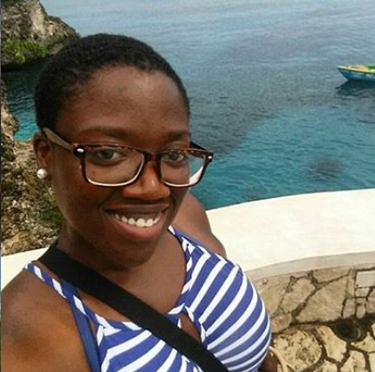 Jamaica, 2016 Jamaica, 2016 In late 2015, by some cosmic Universal alignment, my husband's schedule finally allowed for us to start working out together. He had already been powerlifting for several years and I'd always found it quite fascinating. I was super excited to try it out - and try it out I did. For over a year, I spent grueling (yet so awesome) late evenings and weekend mornings side by side with my husband, gaining strength and power. I watched in amazement as my body transformed in ways I never thought imaginable. Pockets of fat had dissipated and strong, lean muscle had grown in its place. I wasn't yet where I wanted to be aesthetically, but I was beyond pleased with how strong and athletic I'd become. I was so in love with the process that I eventually decided to become certified as a personal trainer. I wanted to help others to achieve what I was achieving, to help them fall in love with fitness and change their lives for the better. As noble as my intentions were, however, they might have been a bit premature. See, I was quite fit and knowledgeable about fitness, but mentally and emotionally, I wasn't ready. I had quite a few unresolved emotional issues that would soon come bubbling up to the surface. Funny enough, it all started with a trip to Jamaica. My mom realized that even though it was her place of birth, there were many parts of the island that she had never actually seen. She decided to embark on a road trip around the island and urged me to come along. Long story short, it was a seriously life-changing journey. It was such a beautiful experience that giving a short description in the middle of this post just wouldn't do it justice. I discovered so much about myself and felt a connection to my culture and ancestry that I'd never felt before. It was so wonderful that I wasn't at all prepared for the reverse culture shock that would hit me once I came back to New York. At one point, as I hung out in the middle of the city passing time with my husband before our friend's improv show, I slowly began to devolve into a panic attack. The noises, the crowds, the cold, towering skyscrapers that I'd been around for most of my life all of a sudden became way too much to bear. We were forced to head home before the show ever even started. This was the beginning of a resurgence of mental health struggles that would last for months. Up until then I thought I'd conquered them; powerlifting was a natural mood booster that had given me such confidence, but it wasn't the final fix that I thought it was. When fall came around our schedules no longer aligned, and I found myself suddenly powerlifting on my own. Things that I now consider trivial, like being stared at by random men in the gym, were way too much for me to handle. I felt fragile, and I was slipping back into a constant state of panic, anxiety and depression that I thought I'd left behind. Soon, I was no longer lifting. I was no longer working out at all. The days were getting shorter, darker and colder, and the depression was only getting worse. I was eating ridiculous amounts of pork, something that my now vegan self looks back at with terror and disgust. The fit, slightly sculpted body that I'd spent a year working for was gone within a span of about five months. In the blink of an eye, I'd gained 30 pounds. I began therapy during this time, and for the first time in my life I'd begun to unpack the roots of my anxiety and depression. Going back through my childhood traumas and really digging deep into my darkness is what allowed me to finally start healing in a way that I wasn't able to by just lifting weight. Therapy was absolutely pivotal, because it was what placed me in the mindset to truly embrace the idea of going vegan. It was the beginning of a healing journey, and I was ready to do what I needed to do to improve my life. For the first few months, weight was falling off like crazy. I was super active, running several times a week, and eating pretty spectacularly. As fall came around again, I decided to get back into the gym so that I could remain active through the season. I was quite diligent and consistent, though I wasn't working out nearly as hard as when I had my husband there to support and challenge me. Without my trusty spotter and all-around bodyguard, I didn't feel comfortable enough to lift as heavily as I used to, though I did still do some light lifting. I did, however, make serious use of them cardio machines - I'm a beast on the arc trainer ;). Now here's the part of the story where things are supposed to go amazingly. This is the part where the happily ever after is supposed to come in, where I lose the rest of my unwanted body fat, gain that sleek, toned body that I've been seeking, and become this super fit athlete with an Instagram booty. Yeah... nah. I mean, the booty is there - a well appreciated gift from mama Africa and weighted squats - but fitness model I am not. Me after an awesome cardio session a couple months ago. I've been in a maddening plateau. For months. I've cursed my scale more times than I can count. My body weight fluctuates like crazy. One day I'm feeling lean, the next I'm feeling bloated to all hell because my hormones are raging and my body is hoarding water like it's expecting a drought. I watch as my husband achieves his desired body seemingly with ease (though it'd be disingenuous & just wrong to deny that he doesn't too have his body image moments - we all do) and I grow frustrated and annoyed. I've had moments of anger and frustration. I've cried. I've had days where I go so hard during my workouts that the next day the soreness zaps all motivation to move. I've cleaned up the nooks and crannies of my diet, removing unnecessary oils, having the salad instead of the (vegan, of course) burger, and increasing my fiber so much that I have a date with my toilet several times a day (which, isn't necessarily a bad thing - that waste needs to go!). None of this has been particularly painful, because I still eat delicious food, but I've definitely gone the extra mile to clean things up. Some days, in spite of what the scale says, I see progress. I see muscle growth that probably explains away the two or three pound increase on the scale. I see the contours of my body changing in ways that are reminiscent of what I'd achieved during my heavy lifting year. But those days are fleeting, and the next day, as if someone has changed the lenses over my eyes, I see all the ways I haven't improved, and all the struggle that I have yet to overcome. Post-gym selfie from about a month ago. I'm writing all this because I know that I'm hard on myself. I consider fat loss to be a part of my healing, and healing is a day by day process. I've seen so many improvements in my health over the past year that really can't be glossed over. My hormones aren't anywhere near as erratic as they used to be, even though they aren't yet perfect. My digestion is the best it has been in my entire life, I seriously poop like a well-oiled machine. My skin has cleared up for the most part, though I really wish these hyperpigmentation scars would hurry up and fade. But these marked improvements can be easily forgotten when I start obsessing about what I look like.
I'm learning to be patient with my body. It isn't going to simply change just because I will it to. It needs time, because healing takes time. I'm learning to stop comparing myself to other people, and to stop allowing my perfectionist tendencies to cause me to view myself in a negative light. I'm not saying that fat loss is no longer a priority for me, because it is. I don't believe that the excess weight I carry is healthy for me, and from a purely practical level, I can't perform the way I want to athletically while dragging around extra weight, I just can't. I'd be a liar if I didn't say aesthetics don't matter to me, because after spending the majority of my life overweight, I want to see what my body looks and feels like when given a chance to not be these things. It's not necessarily about fitting some narrow standard of beauty, that's not my goal at all. But I do want my body to achieve a level of health and fitness that it's never seen, and I won't apologize for that. But I do put too much pressure on myself, as I do with all the goals that I want to achieve. I'm slowly learning to trust myself and the process, and to love myself through it all because happiness isn't going to come from achieving the body I want for myself. It's going to come from the feeling of accomplishment that comes with smashing the goals that I set forth for improving myself. I'm eager to reach my destination, but I'm learning to embrace all parts of the journey - the good, the bad, the painful and the beautiful. "If I didn't define myself for myself, I would be crunched into other people's fantasies for me and eaten alive". - Audre Lorde Before I came out as bisexual a couple years ago, I agonized over the thought of telling the world. How would people react? What would they think about me? What would they say? I was married to a man who I'd been with since I was a teenager, so why say anything? I would be lying if I said it wasn't hard to fight the temptation to simply stay quiet. After all, why should I let the world in on something that was so intensely private to me? Why should it be anyone else's business? My reasons for coming out are plenty, with representation being high on that list. Overall, I felt it was important to stand up and be counted so that others like me would feel safer doing the same. Yes, I am a woman and Black and bisexual. Yes, I exist, in all my complication, I exist. The thing that pushed me to finally come out, the thing that pushed me to spill my guts to my mother over lunch, the thing that made me write a Facebook status to confess to the rest of the world was that ceaseless, nagging feeling deep in my gut. You know that feeling. That agonizing feeling of needing desperately to exist as your most honest self, in spite of the fact that it may come with dire consequences. It took me a while to realize it, but so much of my anxiety issues came from the parts of my self that I felt I had to hide. Of being someone who I knew would never be fully accepted by a lot of people. After a while, the anxiety becomes too much to bear. I came to the conclusion that if I was going to continue living on this Earth, I had to do so as my authentic self, not the fragmented faces that I put on to please everyone else. I wanted to be myself, my whole self, and I damn sure didn't want my image to be shaped by anyone else but me. I started this blog to leave a record. Because when I'm gone, I don't want to be anyone's sensational story or their salacious piece of gossip. If you're going to hear anything about me, you're going to hear it from me first. It's a difficult stance to take, but it's liberating as hell. I'm seizing control of the most important narrative that I'll ever write - my own life. It was so hard at first, but as time goes by, I'm reminded again and again of how important it is to openly and loudly define myself, as well as the dangers of leaving that job up to anyone else. See, the problem is that people mostly tend to see you through the lenses of their own lives - their past experiences, their beliefs, their values, their personal points of reference. It's human nature, the fact that we struggle to see and accept people for who they truly are. We project images onto people to make them who we want them to be because confronting who they really are, their true humanness, well that's just too difficult. That might force us to confront ourselves. When Dick Gregory (RIP) passed, I noticed something quite interesting. He was a prolific man with wide influence, so when the social media posts started popping up and people were listing his accomplishments, there was admittedly much to say. However, I noticed that the only people who seemed to mention his vegan activism were other vegans. First of all, I would have to come back and haunt somebody if I spent 50 years of my life dedicating myself to something and then people ignore it once I'm gone. Not only was he vegan but he spoke often about the detrimental effects of a meat, dairy and junk food-laden diet on Black health. You simply cannot talk about racism without addressing that elephant in the room. "[S]entient beings … endure pain and torture as they are transformed into food for profit, food that generates disease in humans whose poverty compels them to rely on McDonald’s and KFC for nourishment" - Angela Davis Or similarly, for all I'd learned growing up about Angela Davis's brilliant civil rights activism, I wasn't aware of her animal rights activism until I myself became vegan. It also took way too long to learn that she identifies as lesbian. For Angela Davis and for myself, animal rights, civil rights and human rights are inextricably linked, yet there are many people who choose to speak only about her views on race. It can be quite disappointing to come across people who are supremely knowledgeable about the systemic nature of racial injustice and yet are casually speciesist and dismissive about animal cruelty. Just as it's disappointing to hear White animal activists speak as if racism is a bygone institution that no longer has a debilitating effect on Black lives. Just as it's hurtful to hear biphobic remarks from straight (or gay!) people who don't realize that you being a woman married to a man doesn't make you heterosexual. When you exist at these intersections you see that there are battles being fought on so many fronts and yet we're holding each other back in so many ways - simply because we refuse to see past ourselves. We refuse to extend empathy past the people - or animals - whose lives we can identify with. There are Black people who will never accept my bisexuality or my stance on animal rights or both. There are vegans who think that it's stupid for me to care about the connection between diet and racial injustice when animal injustice is, in their opinion, so much worse. There are women who can relate to my gender but like to pretend that they don't see my skin color. What frustrates me the most is that in all of these movements, the inability to see past these subtle differences in identity hinders the necessary work that needs to be done on all fronts to stem horrific violence and pain. There's a larger picture, a larger purpose that connects all the dots together. There's a lot of talk about intersectionality, some of it misguided and a lot of it quite frustrating, but that doesn't change the fact that intersectional identities matter. In its original context (please watch the video I include at the end), intersectionality confronts the places - the identities - where we're most at threat to be discriminated against. People who exist at intersectional identities are intimately aware of how terribly we can treat each other (and how institutions can treat us) simply because of who we are. These intersections matter because they are the fragile seams holding this entire thing that we call life together. They can either serve to push us further towards a more accepting and more loving world or they can unravel and tear the fabric of our entire existence apart. It matters that Dick Gregory was a Black vegan. It matters that Angela Davis is a Black lesbian civil rights and animal rights activist. It matters that Richard Pryor was both bisexual and a Black man. It matters that I am a bisexual, Black vegan woman of immigrant descent. It all matters because if we can see the greater picture, it has the potential to show us, for once, that our unique and varied existences are the common thread that binds us all. It serves none of us to constantly be pushing people into tiny, suffocating boxes so that they'll fit the acceptable, uncomplicated image that we project onto them. Accepting the parts of people that make us uncomfortable allows us to address the places where we feel discomfort within ourselves. It is there that you'll find that whether we like it or not, we're all connected in this shared existence. The things that we learn from and about each other are the things that will allow us, collectively, to grow and progress. But first, we have to be able to see ourselves, and each other, for the varied, complicated, yet whole human beings that we are. "Let food be thy medicine and medicine be thy food" - Hippocrates "If you nuh get it you will lose, mek you food be you medicine, you medicine you food, blend up the carrot wit the lettuce inna juice, nuh 'fraid fi mix the vegetable wit the fruit. Spirulina wha me drink fi mi dinna" - Chronixx Photo Source: Greensleeves Records It was a Rastaman who first told me to remove meat and dairy from my diet. Long before I even knew what a vegan was, I was familiar with ital living, the Rastafari way of life that not only dictates diet, but is couched in an active resistance against the systems of oppression that have brutally removed the descendants of slaves from their roots. Before veganism even started to hit the mainstream, the rejection of foods that were thought to cause illness and further enslave the bodies and minds of Black people was integral to the Rastafari way of life. "Ital means "springing from the earth, earthy, natural," or organic... One of the ills of Babylon, according to Rastas, is its departure from naturalness and its commitment to artificiality. Thus the Rastafarian ideal proscribes the use of synthetic materials and chemically treated foods... Ital living also means that Rastas are basically vegetarian, rarely eating meat and strictly prohibiting the use of pork, shellfish, and scaleless fishes, especially those that are predators. The strong disapproval of fish that are predators results from the belief that eating them would be an implicit approval of their "human predator" counterparts." - Ennis Edmonds, Rastafari: From Outcasts To Culture Bearers, Oxford University Press, 2003 Rastafari has been unfairly reduced to a stereotype by mainstream media, through imagery that depicts them as mindless, weed-smoking caricatures. However, this couldn't be any further from the truth. As Jamaican culture has rapidly Westernized, it is through the Rastafari way of life that old wisdom continues to persist. The knowledge and reverence of medicinal herbs - both to eat and to smoke - has served as a source of healing for those who have found themselves seemingly abandoned by the medical establishment. That's how I felt - abandoned - when I found myself seeking the consultation of a Rastaman with knowledge of indigenous healing. I'd spent my entire life up until that point going from doctor to doctor seeking respite from countless ailments, but to no avail. The solution was always a prescription for some medication or another or the empty, clueless shrug of shoulders which indicated "I cant help you". During this consultation, I marveled at the youthful glow this old Rastaman possessed. Though his hair was pure white, he looked younger than me! I knew he must have the answers. And he did. But I didn't listen. Call it youthful ignorance, as I was in my early twenties at the time, but I didn't stick with the plan that he laid out for me. I won't lie. It was difficult. I felt restricted in what I could eat, I hated the taste of the herbs and concoctions that I was made to drink, and it was all too much for me at the time. It was only a matter of time before I ended up going back to my old ways, and inevitably, getting sicker. However, I never threw out the paper upon which he'd written my dietary plan. I kept it posted on my fridge - for years. It was only last year, after being vegan for a few months and feeling absolutely amazing, that I looked back upon that paper and realized that, though it took me many years, I'd eventually found my way back to the very same diet plan that he'd suggested for me. I knew he was wise; I only wish that I had been wise enough at that point to listen. His existence, his knowledge, and the ital lifestyle in general has proven invaluable to those of us in the diaspora who feel that they have no other option. I've heard countless stories of Caribbean descendants who, after finding no help from their doctors, finally found healing through the herbal knowledge of a "bush doctor". This kind of "alternative" medicine is the entire point of the Rastafari way of life - to get back to our roots, to find healing and respite from the physical, mental and spiritual damage that has followed us since the first days of colonization. When all else fails, we can go back to our roots. I don't consider myself a Rasta, though I am married to one. It would also be disingenuous of me to not mention that not all Rastas exclude meat and dairy from their diet. As with any way of life, there are people who follow the tenets to varying degrees. However, it can generally be said that the ital diet is a crucial aspect of the Rasta way of life, and it has become a healing salve for many who have sought health but were previously unable to find it, especially in Caribbean immigrant enclaves like the one I grew up in. Even to this day, the only vegan restaurants available in the Bronx serve ital and Jamaican vegan dishes. While no one else seems to want to serve us food that serves to heal, the Rastas have been doing it for years. This is why I find it utterly laughable that even in 2018, there are many people who still can't even fathom the notion of a Black vegan. Not only is this a supremely narrow-minded view of Blackness that serves to minimize us all to stereotypes, but it is an ignorant form of erasure that undermines the radical, grassroots work of Black people who have long sought to change lives through changing diets. For so many of us, veganism wasn't initially a conscious decision as much as it was the only thing that finally brought us some healing. Nowadays, the plant-based Rasta ideals are becoming more and more mainstream, with amazing people like Macka B who, in true Rastafari fashion, uses music to preach the medicinal benefits of plant foods to the masses. Similarly, Grammy-nominated reggae artist Chronixx made an entire song titled Spirulina (featured below), where he also promotes the importance of making your food your medicine. In some of his other songs he openly criticizes the Jamaican government for pushing junk food on the populace, as well as the absurdity of saltfish being part of the nation's national dish. For Rastafari, promoting healthy foods and criticizing the establishments which do the opposite are all integral parts of the same movement. Just like veganism, the consideration of the food that one consumes is not only about improving one's health, but also about the greater struggle against oppression. The only difference is that there's a certain level of privilege attached to the ability to make the dietary change solely about animals. For Rastafari and Black vegans in general, the struggle against systemic oppression isn't new, it's been an ongoing struggle. Animal abuse is just another form of oppression to add to the list. Veganism may be widely considered to be a "White" thing, but it is honestly, anything but. The movement as a whole is about dismantling systems of oppression by making the conscious decision to not partake in harmful practices that are the foundations of those systems, and whether people want to admit this or not, poor dietary habits rooted in trash food options pushed upon people by corporate and governmental establishments is a part of that system of oppression. Rastafari proves that the ideals behind veganism - to reduce harm - aren't confined to animal-loving White hippies, but have long extended across racial lines and across borders to those who are still fighting to prove that their lives matter, too. |
AuthorMy name is Nivea, but you can call me Niv. I'm an independent Plant-Based Nutrition & Fitness Coach hailing from the Bronx, NY. Archives
August 2021
Categories
All
|

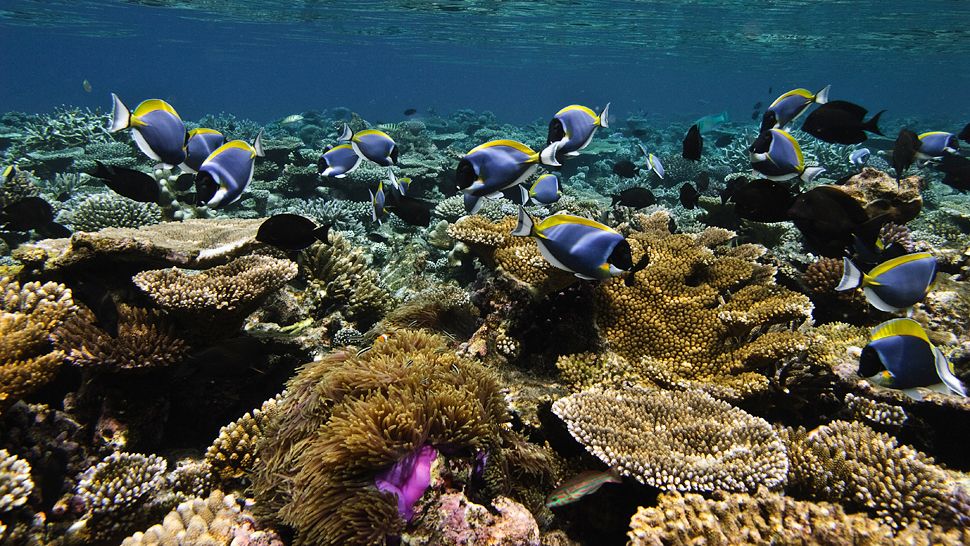
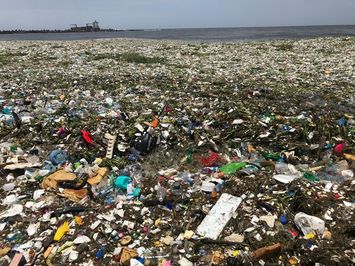
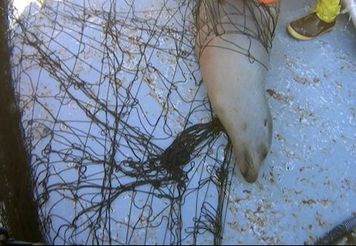
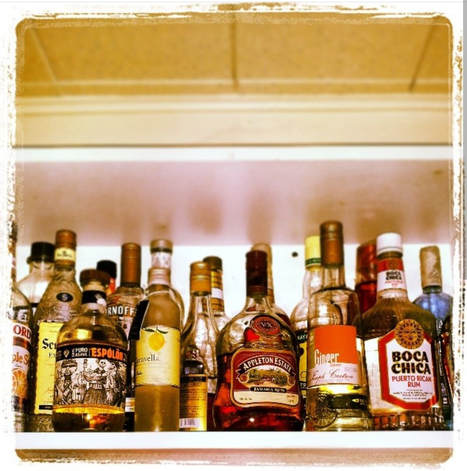
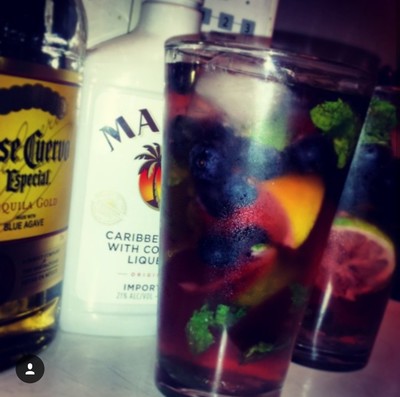
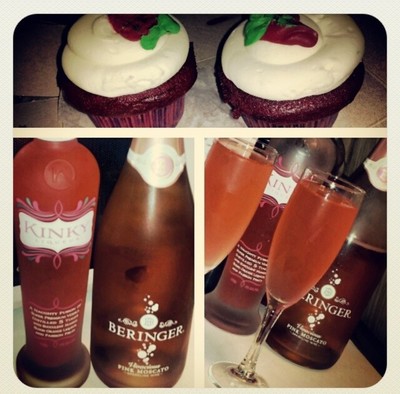
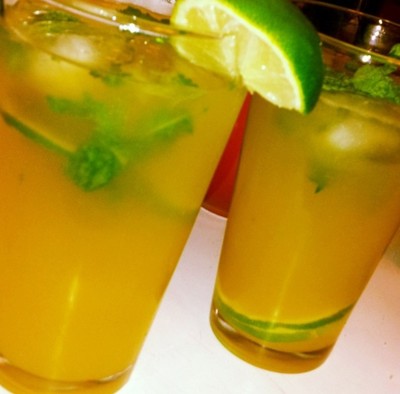
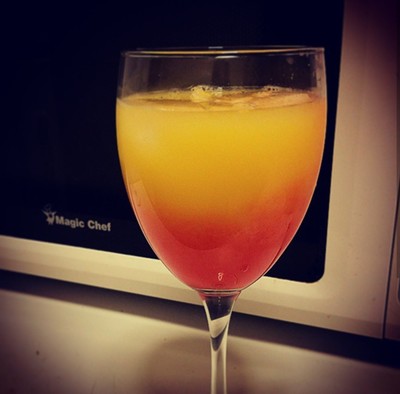
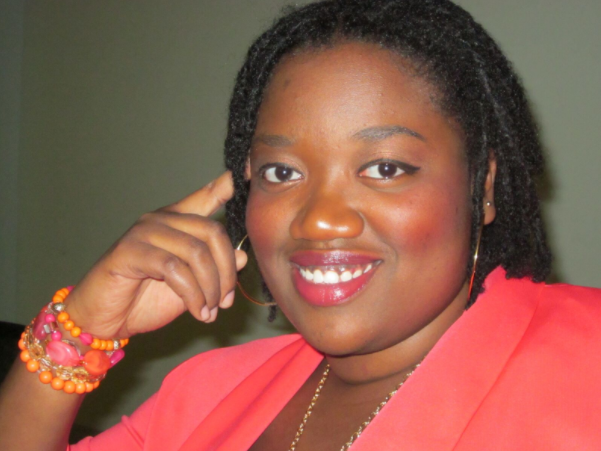
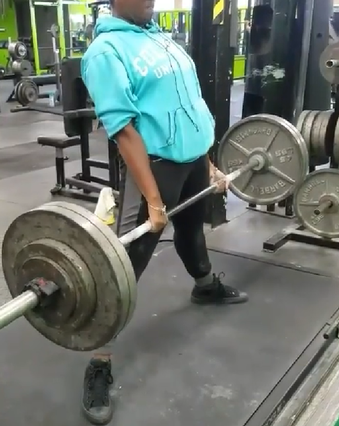
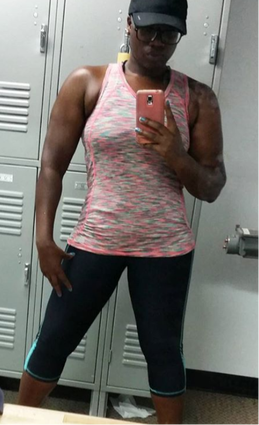
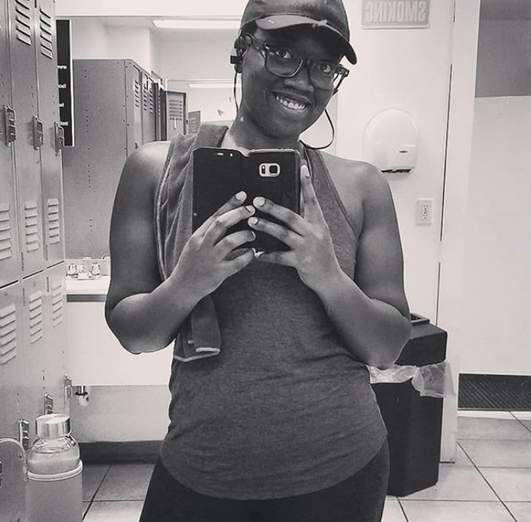
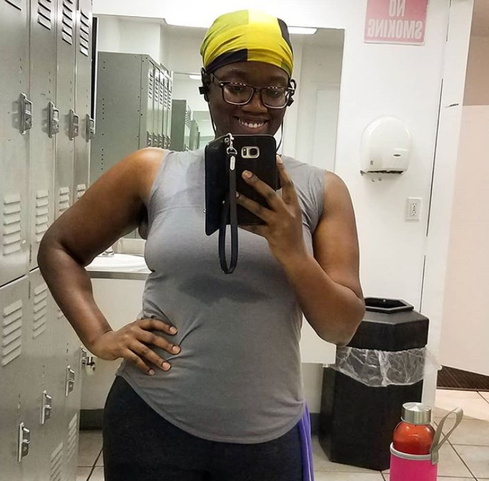
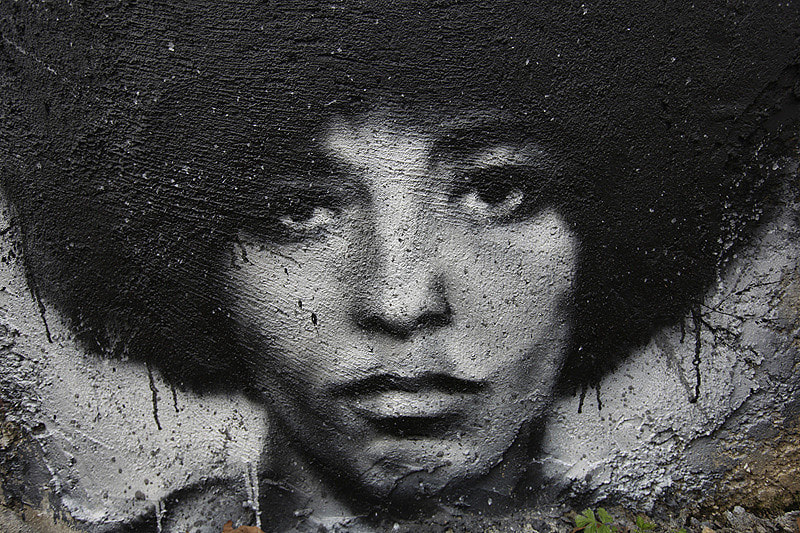
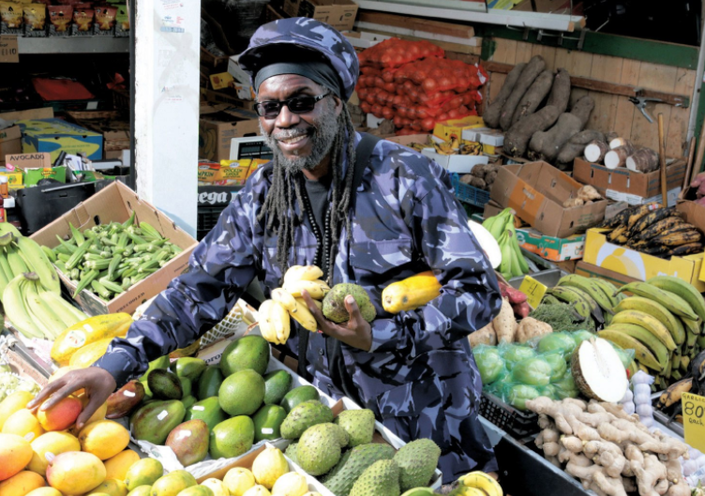
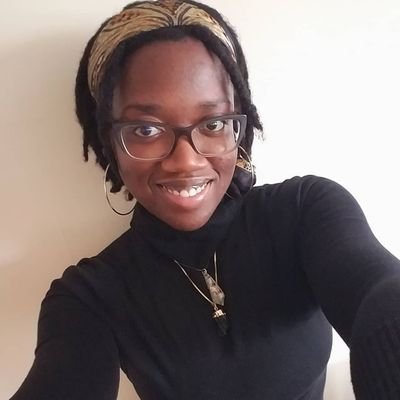
 RSS Feed
RSS Feed